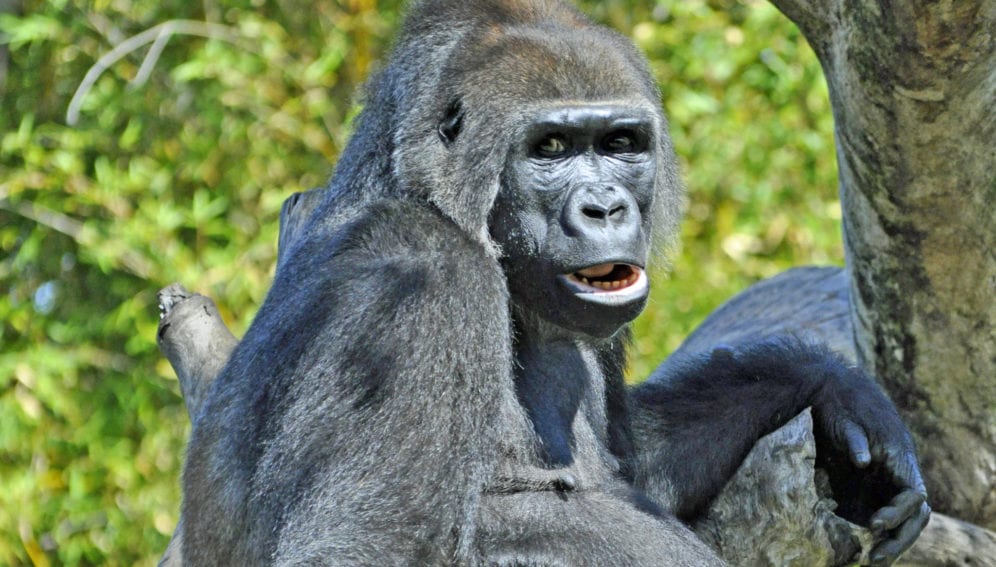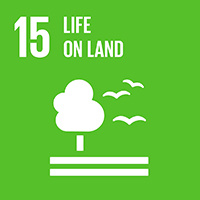27/04/21
SciDev.Net article on threat to Ebo Forest helps save endangered and rare species

Send to a friend
The details you provide on this page will not be used to send unsolicited email, and will not be sold to a 3rd party. See privacy policy.
In brief: The tropical Ebo Forest in Southwest Cameroon is known for its unique ecosystem and for being a home to endangered and rare species. However, in early 2020, the Cameroon government approved the creation of logging concessions in the forest. SciDev.Net published a story about the threat posed by the concessions to the communities and wildlife of the forest. By August 2020, the concessions had been cancelled. Local NGO Foder believes media attention, including SciDev.Net’s article, played an important role in this cancellation.
Why it matters: The Ebo Forest supports many endangered and critically endangered species and has national and international importance in terms of its biodiversity.
The big picture: Global biodiversity loss is outpacing natural extinction. Efforts must be made to protect the remaining habitats of endangered species from being destroyed by humans for short-term gain.
By the numbers: Animal numbers are dwindling. The Nigeria-Cameroon chimpanzee is the most endangered species of chimpanzee in the world with only 3,500-9,000 individuals left in the wild of which around 500-700 live in the Ebo Forest.[1][2] There are only 15-25 Ebo gorillas left in the wild.[3]
Background
The tropical Ebo Forest in Southwest Cameroon, with an area of around 1,500km², is known for its unique ecosystem that supports diverse fauna including endangered and critically endangered animal species.
The Ebo Forest is home to one of the only two remaining populations of Preuss’s red colobus, a critically endangered monkey that ranks among the most endangered primates worldwide. It is also home to the Nigeria-Cameroon chimpanzee, the most endangered species of chimpanzee in the world. Other endangered animals living in the forest include the Ebo gorilla, African forest elephants, goliath frogs, grey parrots and grey-necked rockfowl.
In addition to this rich biodiversity, the Ebo Forest is home to more than 40 communities that rely upon the resources of the forest for their food and medicine. In light of its importance, NGOs and conservation scientists have called for the forest to be classified as a protected area.
However, on 4 February 2020, Cameroon’s Ministry of Forests and Wildlife proposed the creation of logging concessions in the Ebo Forest, engendering this delicate ecosystem and home to species that are in danger of extinction. On 14 July 2020, the government signed a decree approving the first of the concessions.
What action did SciDev.Net take?
In July 2020, local NGO Foder (Forêts et Développement Rural) invited journalist and SciDev.Net Regional Coordinator for Sub-Saharan Africa, Julien Chongwang, to a press conference about the situation facing the Ebo Forest. He attended (online) and wrote a story highlighting the threat posed by the concessions.
However, Chongwang included angles which, until that point, had not received much or any attention in the press. Chongwang said: “I realised that talking about endangered species and local communities was important but might not change anything. The press had already covered these angles. I had to try something different.”
In his article he focused on two new issues. Firstly, previous concessions in Cameroon had only brought conflict to the country, never the development benefits they were meant to bring. Secondly, Namibia generated around 15 per cent of its revenue through ecotourism and Cameroon could, likewise, raise revenue through ecotourism but not if the concessions prevailed.
On 4 August 2020, SciDev.Net published Chongwang’s ‘At Large’ news story under the title, Cameroon on the verge of destroying one of the world’s unique ecosystems. SciDev.Net was the only international outlet to publish a story from the press conference and the only outlet to cover these two new angles.
What was the impact of SciDev.Net’s action?
On 11 August 2020, the Cameroon government announced its decision effectively to cancel the logging concessions. NGO Foder believes its press conference and the SciDev.Net story played a role in this decision.
Justin Kamga, president of Foder, said: “For us, it’s very useful to work closely with the media. We can’t do our work without them. We choose outlets that are serious, and we think SciDev.Net is a serious outlet.”
Christelle Kouetcha, head of communication at Foder, added: “We invited SciDev.Net to our press conference because of the angles with which SciDev.Net treats articles. We were sure that by inviting them, we would have an article that would have a big impact on the world.”
Kamga explained: “The SciDev.Net online article had impact. I had feedback from people who used it for advocacy at a high level.” When asked if SciDev.Net played a specific role in the cancellation of the logging concessions, Kamga said: “Yes, it’s possible.”
Kouetcha added: “Our government won’t say that it made a decision because of a journalist’s article, but we had informal feedback from executives in the forestry administration who revealed that the government finally decided to postpone the concessions because of Foder’s communications activity – its work with the press.”
- The cancellation of the logging concessions protects 500-700 endangered Nigeria-Cameroon chimpanzees and 15-25 Ebo gorillas
- 40 communities can continue to rely on the resources of the forest for food and medicine
Relevant SDG:

“Sustainable Development Goal 15, Life on land, Icon “

